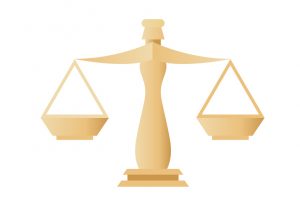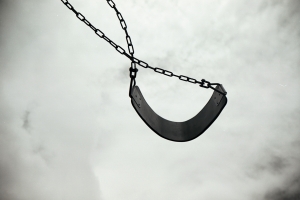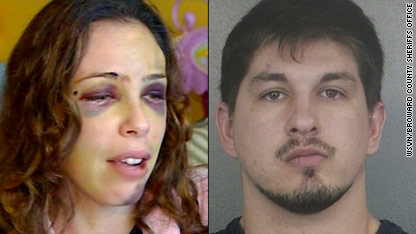 Couples fight and argue. Families get into disagreements. Roommates can’t get along. But, in some cases, these conflicts rise to the level that violence between people is dangerous and needs intervention. Our recent situation, where families, roommates, neighbors, and others are confined to their living spaces for elongated time periods highlight for many that their homes are not safe places for themselves or the people around them. It’s another serious dilemma facing us all as schools who watch over the safety of children are closed, and those who suffer feel as though they must suffer in silence, because there is no place that is safe for them to go.
Couples fight and argue. Families get into disagreements. Roommates can’t get along. But, in some cases, these conflicts rise to the level that violence between people is dangerous and needs intervention. Our recent situation, where families, roommates, neighbors, and others are confined to their living spaces for elongated time periods highlight for many that their homes are not safe places for themselves or the people around them. It’s another serious dilemma facing us all as schools who watch over the safety of children are closed, and those who suffer feel as though they must suffer in silence, because there is no place that is safe for them to go.
Unfortunately, as liquor stores are considered “essential businesses” and many individuals face economic stress as well as fear from the Coronavirus, the climate for domestic violence is warming and becoming dangerous. Many law enforcement agencies have reported lower than normal call logs for assistance in situations of domestic violence, but that does not mean that the incidents themselves are lower, but rather that many who find themselves in a domestic violence situation feel as though there is no where for them to go, or they fear where they will have to go while trying to keep themselves safe during these days of “social distancing.”
If you are experiencing a violent or threatening situation in your home, now is not time to remain quiet. As a community, we are surging in reaching out to others, and being of service to one another in helping to get through this time. Calling law enforcement to report violence, or going to the hospital if you have been injured is not something that you should wait on in hopes that your partner will stop, no matter what they say. If you are being hurt, or threatened, you can go to the local courthouse in your area. In the State of Florida, the Courthouse remains open with a trained staff to help you to file the necessary Petition for Protection Against Domestic Violence, and the judges are reviewing these Petitions and placing temporary Orders for Protection Against Domestic Violence, if legally sufficient, to protect people during these times. At Wood, Atter, & Wolf, P.A., we are also working diligently through this time to help those in need that may need representation to facilitate the filing or advocacy in the courtroom of domestic violence injunctions to keep victims and children safe. As an experienced attorney in the field of domestic violence, knowing whether your situation is one that requires an injunction, and what services may available to help you through this time, is a main priority, as well as ensuring that your home can remain a safe place for you.
 Jacksonville Divorce Lawyer Blog
Jacksonville Divorce Lawyer Blog


 Domestic Violence is a very serious topic. In fact, many victims of “domestic violence” dislike even using the term, because the reality is that if it were always violent, it would be much easier to detect. The truth is that domestic violence happens in everyday, in every city in the State of Florida and other States. Victims can be male, female, or transgendered. Victims range in age from infants to elderly. So, why is it so difficult to identify whether domestic violence is happening in your home?
Domestic Violence is a very serious topic. In fact, many victims of “domestic violence” dislike even using the term, because the reality is that if it were always violent, it would be much easier to detect. The truth is that domestic violence happens in everyday, in every city in the State of Florida and other States. Victims can be male, female, or transgendered. Victims range in age from infants to elderly. So, why is it so difficult to identify whether domestic violence is happening in your home? Dealing with a domestic violence issue can be challenging and understanding the legal process for getting an injunction or restraining order to protect your from the domestic violence in Jacksonville, Florida can be key. The process does require the filing of a petition by the individual that is the victim of the violence. There are certain criteria for filing and the victim should seek immediate shelter either with a friend, family member or through the
Dealing with a domestic violence issue can be challenging and understanding the legal process for getting an injunction or restraining order to protect your from the domestic violence in Jacksonville, Florida can be key. The process does require the filing of a petition by the individual that is the victim of the violence. There are certain criteria for filing and the victim should seek immediate shelter either with a friend, family member or through the 
 Domestic violence issues in Florida and throughout the country can be seen in even the most heinous of crimes. Sometimes, the domestic violence can be a precursor for violence on others, including innocent, unrelated victims. A recent case is the much publicized case involving Jennifer Hudson’s family, but a case that struck many of us throughout the country, the sniper shootings in Virginia, also started with domestic violence. Mildred Muhammad, ex-wife of DC Sniper John Allan Muhammad, gave an interview to Larry King the night before her husband was to be executed for his crimes at a Virginia state prison. Muhammad left 10 dead in a shooting spree that his
Domestic violence issues in Florida and throughout the country can be seen in even the most heinous of crimes. Sometimes, the domestic violence can be a precursor for violence on others, including innocent, unrelated victims. A recent case is the much publicized case involving Jennifer Hudson’s family, but a case that struck many of us throughout the country, the sniper shootings in Virginia, also started with domestic violence. Mildred Muhammad, ex-wife of DC Sniper John Allan Muhammad, gave an interview to Larry King the night before her husband was to be executed for his crimes at a Virginia state prison. Muhammad left 10 dead in a shooting spree that his 



 Domestic violence in marriage can be a major cause for
Domestic violence in marriage can be a major cause for